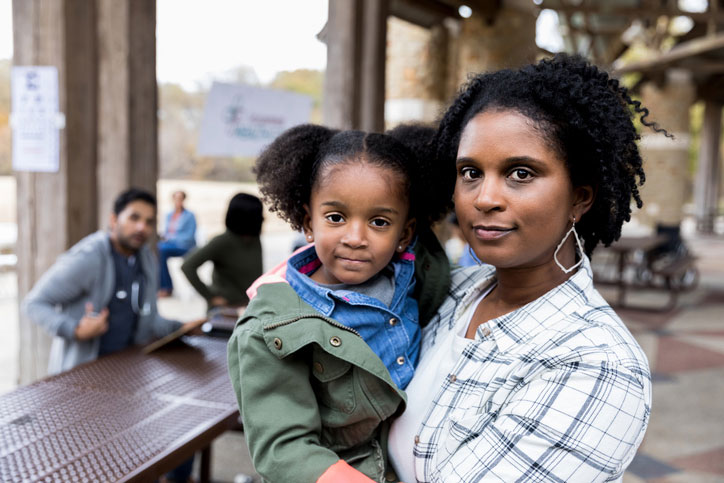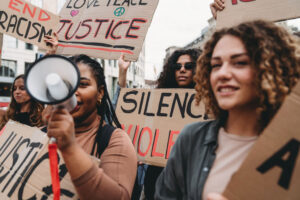Written by Rebecca Turley

Opioid settlement funds are finally making their way to Staten Island, giving social services agencies and the social workers who work for them much-needed funding to provide lifesaving care.
$12 Million in Funding Earmarked for Addiction Treatment in Staten Island
In December 2023, Mayor Eric Adams committed $12 million in funding over the next four years to Staten Island organizations focused on addiction treatment and prevention. This funding, funneled down from the opioid settlement awards earned from lawsuits brought by the NYS Attorney General, will go to agencies involved in treatment, outreach, and harm reduction, as well as to agencies focused on issues like housing and employment assistance.
Major funding like this helps social service organizations throughout the borough expand their services and resources to help more people affected by the ongoing opioid epidemic. As a result, social workers in public, private, and nonprofit agencies are enjoying more opportunities than ever before, both in Staten Island and across the NYC metro area.
For many, this means that there’s no better time than now to begin thinking about the degree it takes to launch a career in social work, or take it to the next level.
Earning the BSW or MSW That Will Turn Your Drive to Help the People of Staten Island Into a Reality
Social work degrees are growing in numbers, with a variety of colleges and universities now offering programs designed for either aspiring or practicing social workers. The Bachelor of Social Work (BSW) remains an outstanding starting point for a social work career, with a host of job opportunities available to BSW graduates in community centers, homeless shelters, substance abuse treatment facilities, and halfway houses throughout Staten Island.
But if you want to engage in the clinical practice of social work, you’ll need to earn a Master of Social Work (MSW) to qualify for state licensure.
The path to becoming a social worker in Staten Island requires earning an MSW that’s accredited by the Council on Social Work Education (CSWE). You can earn an MSW one of two ways:
- By earning a bachelor’s degree in a human services field (e.g., counseling, psychology, sociology) and then completing a traditional, two-year MSW
- By earning a BSW, which then qualifies you for an advanced standing MSW that takes about one year to complete
Whichever path you choose, you’ll need an MSW to earn licensure through the New York State Education Department as a Licensed Clinical Social Worker (LCSW) and Licensed Master Social Worker (LMSW). The LMSW is earned upon completion of the MSW, and the LCSW is then earned after an additional three years of supervised experience in diagnosis and psychotherapy.
Sandra Bernabei: Championing Social Justice in NYC
 Sandra Bernabei is synonymous with social work in New York City. Former president (2014-16) of the NYC Chapter of the National Association of Social Workers, Bernabei’s influence reverberates throughout the city. Her work is extensive, encompassing private practice, director positions at both Barnard College and Columbia University, and many community advocacy positions over the years.
Sandra Bernabei is synonymous with social work in New York City. Former president (2014-16) of the NYC Chapter of the National Association of Social Workers, Bernabei’s influence reverberates throughout the city. Her work is extensive, encompassing private practice, director positions at both Barnard College and Columbia University, and many community advocacy positions over the years.
One of Bernabei’s most enduring legacies is the Antiracist Alliance (ARA), of which she is a founding member. Consisting of a collective of NYC-area human service practitioners, the ARA strives to bring a better understanding of structural racism to social work education and practice.
Since its founding in 2001, ARA workshops have inspired thousands of educators and human services practitioners throughout the NYC metro area and the Northeast to learn about ways to undo structural racism and promote racial equality.
Staten Island is home to the College of Staten Island, which offers both a BSSW and an MSW:
College of Staten Island - CUNY
Department of Social Work
Staten Island, NY

MSW (on-campus)
Also Offers:
- BSSW
- PhD in Social Welfare
The College of Staten Island’s MSW program is renowned for its specialized focus on social work practice with individuals with disabilities. This program integrates a critical disabilities perspective, preparing students for transformative social work through rigorous academic and field training. Students of this program benefit from experienced faculty, comprehensive field placements, and the college’s commitment to social justice and diversity. The BS in Social Work, which prepares students for entry-level generalist urban practice, provides a streamlined path to the advanced-standing MSW that takes just 12 months to complete.
